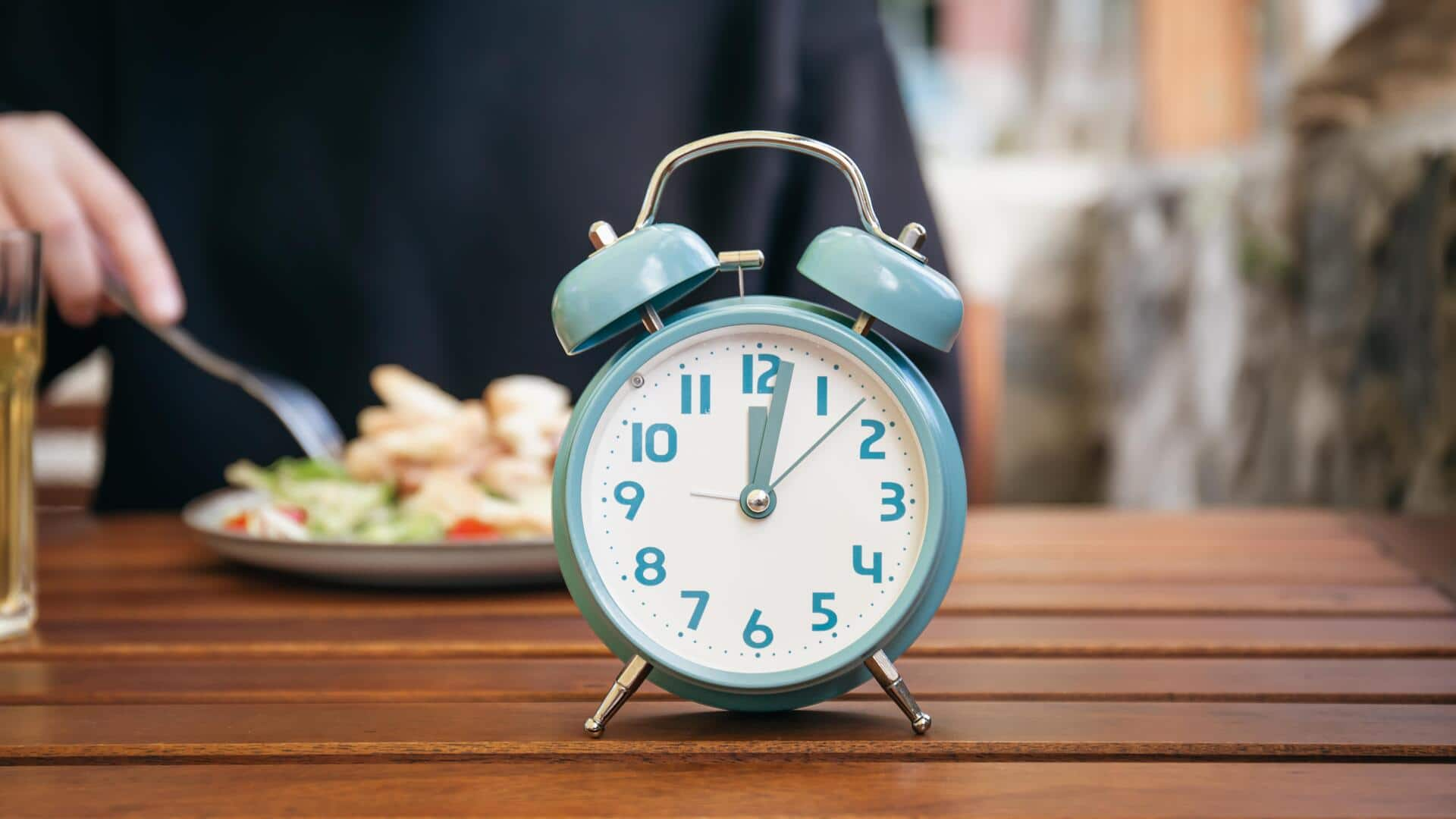
Does meal timing affect your health?
What's the story
Meal timing has long been a subject of debate among health enthusiasts and nutritionists. Many believe that the time you eat can greatly affect your health, metabolism, and weight management. However, recent studies indicate that the impact of meal timing may not be as pronounced as previously believed. In this article, we attempt to debunk popular myths about meal timing and its real effects on your health.
Myth 1
Breakfast: The most important meal?
Most of us have heard that breakfast is the most important meal of the day. Yes, eating breakfast can kickstart your metabolism, but it isn't necessary for everyone. Some people actually find that skipping breakfast allows them to better regulate their calorie intake throughout the day. The trick is to pay attention to your body's hunger cues instead of being rigid about traditional meal times.
Myth 2
Late-night eating leads to weight gain
A common belief is that eating late at night leads to weight gain because your body stores more fat while you sleep. However, research indicates that it is not when you eat but what and how much you consume that matters most. Consuming high-calorie snacks late at night can contribute to weight gain, but a balanced snack or light meal may not have the same effect.
Myth 3
Small frequent meals boost metabolism
We all have heard that eating small, frequent meals throughout the day boosts metabolism and helps lose weight. This trick may work for some by keeping them from overeating at larger, main meals. But there's no solid evidence to prove it significantly increases metabolic rate over the good old three-meal-a-day pattern.
Myth 4
Skipping meals slows down metabolism
Skipping meals once in a while doesn't slow your metabolism or result in major muscle loss, as long as you get enough calories throughout the day. Intermittent fasting has become a fad, as an effective way for some to keep their weight in check without affecting metabolic rate, when done right.
Tip 5
Eating after exercise: Essential or not?
Post-exercise nutrition is all about eating protein-rich foods immediately within a given window after working out. But, this could differ according to your goal; muscle building vs general fitness maintenance. Levels gained by working out regularly alone without being strict about certain post-workout nutritional guidelines are required in every case scenario possible today.